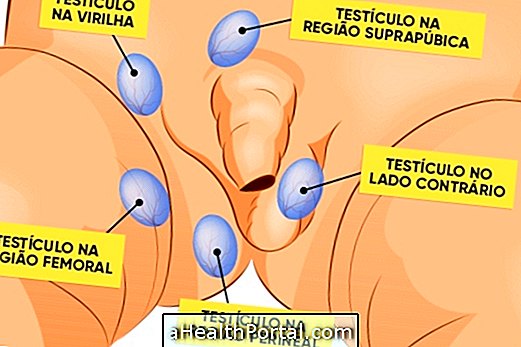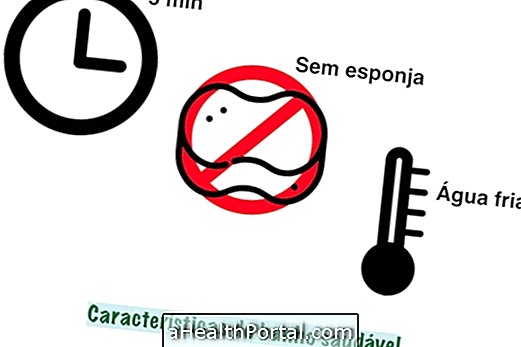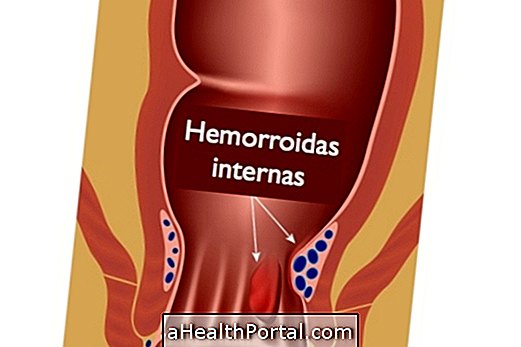One of the possible complications of mumps is to cause male infertility, because the disease can not only affect the parotid gland, also known as salivary glands, but also the testicle glands. This is because these glands have physiological similarities between them and it is for this reason that the disease can "descend" to the testicles. Find out more about Caxumba by clicking here.
When this happens, then an inflammation in the testicles called Orquite, which destroys the germinal epithelium of the testicles, the site where sperm production occurs, eventually causes infertility in man.

How to know if the mumps came down
Some of the symptoms that indicate mumps fall to the testicles include:
- Ejaculation and urination with blood;
- Pain and swelling of the testicles;
- Nodule in the testicles;
- Fever;
- Malaise and discomfort;
- Excess sweat in the testicles;
- Feeling that your testicles are hot.

These are some of the symptoms that arise when Mumps causes inflammation in the testicles, to learn more about this problem see Orquite - Inflammation in the Testicle.
Treatment of mumps in the testicle
Treatment of mumps in the testicle, also known as Orquite, is similar to the treatment recommended for common mumps, where rest and rest are indicated and analgesic and anti-inflammatory drugs such as Paracetamol or Ibuprofen are used. Learn more about the treatment of Mumpsum by clicking here.
How to know if the disease caused Infertility
Any child or man who has had symptoms of mumps in the testicles is likely to suffer from infertility, even when the doctor's recommended treatment has been given to treat the disease. Thus, it is recommended that all males who have had mumps in their testicles and who are having difficulty becoming pregnant should undergo tests to assess infertility.
The diagnosis of infertility can arise already in adulthood, when the man tries to have children, through the spermogram, an examination that analyzes the quantity and quality of the spermatozoa produced. Learn how this Spermogram is done.
How to prevent Mumps and its complications
The best way to prevent mumps, also known as mumps or infectious parotiditis, is to avoid contact with other individuals infected with the disease, as it spreads by inhaling saliva droplets or sprouts from infected people.
To prevent Mumps, it is recommended that children from 12 months of age take the Triple Viral Vaccine, which protects the body against the disease and its complications. This vaccine also protects the body from other common infectious diseases such as measles and rubella. In adults, the attenuated vaccine against mumps is recommended to protect against the disease.
Can Mumps Cause Female Infertility?
In women, Mumps can cause an inflammation in the ovaries called oophoritis, which can cause symptoms like abdominal pain and bleeding.
Ooforite treatment should be done with the follow-up of a gynecologist, who will prescribe the use of antibiotics such as Amoxicillin or Azithromycin, or analgesics and anti-inflammatories such as Ibuprofen or Paracetamol, for example. In addition, Mumps in women can lead to an Early Ovarian Failure that it is the aging of the ovaries ahead of time and that causes infertility, however this is very rare.



























